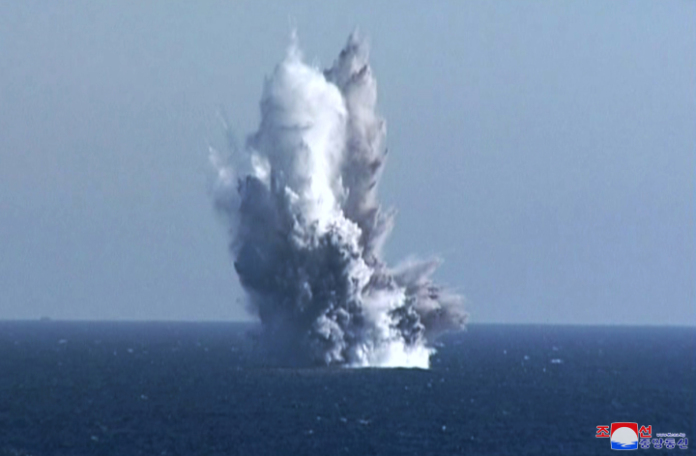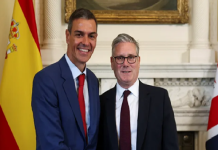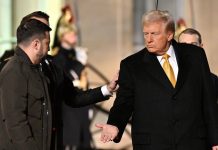At the same time, in my mind’s eye I saw the moments when I had taken part in and made my contribution to various situations related to collective termination of nuclear tests and nuclear weapons containment. I remembered some conclusions based on judgements generated by continuous reflection. I considered myself a lucky person just because I had an opportunity to contribute to such diplomatic successes of the young independent states.
That victory was certainly not easy for the five Central Asian countries.From this point of view, it is important to highlight the Almaty Declaration that became the first building block of that process in Central Asia. It was early 1997.
The presidency term of the President of Kazakhstan N. Nazarbaev in the International Fund for Saving the Aral Sea (IFAS) expired. The Fund was created in 1993 with the purpose of attracting assistance from the international community to solve the problems of the Aral Sea environmental disaster and by rotation the next presidency was Turkmenistan’s.
However, there was no news from Turkmenistan, and time was slipping away. They were reluctant to respond to our correspondence. We got used to the fact that Turkmens could not only give no response but also did not even mean to come to events they had no wish to attend referring to their neutrality.
Consequently, given that time was running out, we took a decision to hold the above-mentioned summit and other events in Almaty and submitted our proposal to the Government. Kakimbek Salykov from the Committee on Water Resources at that time headed the Interdepartmental Working Group on the Aral and Caspian Seas. Almabek Nuryshev was the Director of the IFAS Executive Committee.
Every week we came to K. Salykov to attend a meeting of the Interdepartmental Working Group on the issues regarding the Aral Sea or the Caspian Sea. It was easy and interesting to work with K. Salykov who in his time was a deputy in the Supreme Soviet of the former Soviet Union and for many years headed the Committee for Environment and Sustainable Use of Natural Resources.
There was much to learn from that man of great experience. His profound nature was that of integrity and dignity and he had a special character trait to listen to the person he was talking to without interrupting and then to highlight the key points. I could freely share my thoughts and opinions on the Aral Sea problems with that man even though I was not always successful in drawing attention of my Foreign Ministry supervisors to them. That way, we had a good tradition of exchanging opinions.
We were preparing the required documents regarding the summit and the bureaucratic procedures brought us to the Ministry of Finance. As an official of that Ministry who was in charge of environmental matters was about to sign the document, he expressed his displeasure in the following words: “Foreign Ministry never gets tired of holding various events and throwing money down the drain. Are you going to hold a summit again? What’s more, we now have to hold it instead of Turkmenistan! That means two million tenge will be wasted.” It was needless to explain the significance of that event to him.
However, at the meetings of the Deputy Prime Ministers and the Summit of Central Asian Leaders there were enough documents to sign. Back then, in 1992, it was the time when the new course for sustainable development got on the global community’s agenda as the Sustainability Course was taken in Rio-de-Janeiro,Brazil, at the United Nations Conference on Environment and Development called the Second Earth Summit.
That way, I envisioned that in case the Almaty Declaration on the Sustainable Development of the Aral Sea Basin was signed, that document would for a long time determine the general direction for the countries of the region on their path to sustainable development and in time it would turn into an important historic document that would require a reference. I decided to share that idea withK. Salykov. K. Salykov listened to me attentively, without interrupting, but left my words unanswered and did not say either ‘yes’ or ‘no’.
“It appears that the idea I’ve given him is not to his liking,” thought I and refrained from carrying on that conversation. I also shared that opinion with A. Nuryshev, IFAS Executive Director. I hoped that if he accepted my proposal, he would be able to influence K. Salykov. However, that was in vain: he also listened to me attentively and gave no response turning the conversation to another subject.
When there were three days left before the event, E. Idrissov, First Deputy Minister of Foreign Affairs of that time, called responsible persons from the ministries concerned to a meeting. He asked the gathered representatives of ministries and departments to voice their opinions on organizing the events regarding the Aral problems and added, “If there are any forgotten aspects, let us discuss and refine them together.” Once the Minister finished his speech, at first K. Salykov and then A. Nuryshev, as if they had pre-arranged that, made statements of the following kind based on the points I made. They said that “Because of Turkmens the burden of and responsibility for holding this event rests with us. If that is so, we propose to adopt such document as the Almaty Declaration that will compensate the situation and go down in history.” Pleased with the aksakals’ active attitude, E. Idrissov found the proposal logical right away and requested me to draft the document immediately and, once it was agreed, to expedite its sending to the neighboring states of the region. As I thought out the key idea of the Declaration to be presented beforehand and prepared its draft text, I submitted it to K. Salykov straight away. Other amendments or proposals on the draft that would be different from what he approved were not submitted by anyone else.
Once the draft Declaration was sent to the neighboring states, we waited for their proposals on amendments and additions. However, lack of time meant that the chances to receive their proposals in time were scarce. On the other hand, it was reassuring that there were no objections referring to very little time to consider the Declaration text that had been hurriedly prepared just 2–3 days ago.
On February 27, Deputy Prime Ministers of the five countries gathered in the House of Friendship in Almaty to discuss the Almaty Declaration text along with other 10 documents on the agenda. But before the meeting started my colleague told me that E. Idrissov was searching for me to talk to me over the phone. The moment I heard that I ran to the phone that was in a room at the end of the corridor. In those days there were no mobile phones.
Thoughts are faster than actions so in that brief time span that it took me to reach the room where the telephone was, many thoughts dashed through my mind.Idrissov started the conversation by saying that the fraternal nation of Uzbekistan proposed to supplement the Declaration text with proclaiming the Central Asian region a nuclear-weapon-free zone and wondered what I would say about the validity of adding their proposal to the Declaration and instantly asked me to give justified reasons in the interests of our state.
Feeling pressed for time, I swiftly told that since gaining sovereignty our country had outlined its positions in domestic and foreign policy with regard to nuclear weapons and reminded that on August 29, 1989 pursuant to the Decree of the President of Kazakhstan on closing the nuclear test site a historic voluntary decision was taken to give up the world’s fourth-largest nuclear arsenal.
I made the following point: from the first days of independence the Republic of Kazakhstan announced a foreign policy of peaceful nature aimed at cooperation and mutual trust with all countries and international organizations for the sake of stability, security and prosperity. It asserted that the security foundation for the young state was not its nuclear arsenal but solidarity of its people with the sustainable economic and political development of the country laying a strong basis for implementing sustainable and constructive foreign policy.
Therefore I managed to argue that accepting the proposal by the fraternal Uzbek nation would not harm the interests of the state in any way; quite the opposite, it would pave the way for harmonizing our positions on combating nuclear weapons and mobilizing our efforts along the same line.Idrisov approved my points in a contented voice and hung up. Although I was surprised that E. Idrisov phoned personally and I asked for my expert opinion,at that moment I felt pleased with his listening to my thoughts and motives,inquiring about my position and taking it into account. As I very often noticed how arrogantly senior officials behaved, the act by E. Idrisov made me respect him even more.
When I walked up the corridor and approached the hall where the event was to take place, I met a delegation headed by Abdulaziz Kamilov, First Deputy Minister of Foreign Affairs of Uzbekistan. I recognized only one person among them. It was my colleague Ulugbek Mannanov whom I knew from international conferences held in Kazakhstan before.
It turned out that the delegation was searching for me relying on U. Mannanov. Once we saw each other, U. Mannanov introduced me to A. Kamilov and told me that they had been to the Ministry of Foreign Affairs of the Republic of Kazakhstan and had special proposals to include into the Declaration text. As they discussed them with E. Idrisov, he recommended to meet and confer with me.

Mursal-Nabi Tuyakbaev,Honored Diplomatic Service Officer of the Republic of Kazakhstan,Associate Member of the National Academy of Natural Sciences of Kazakhstan.






